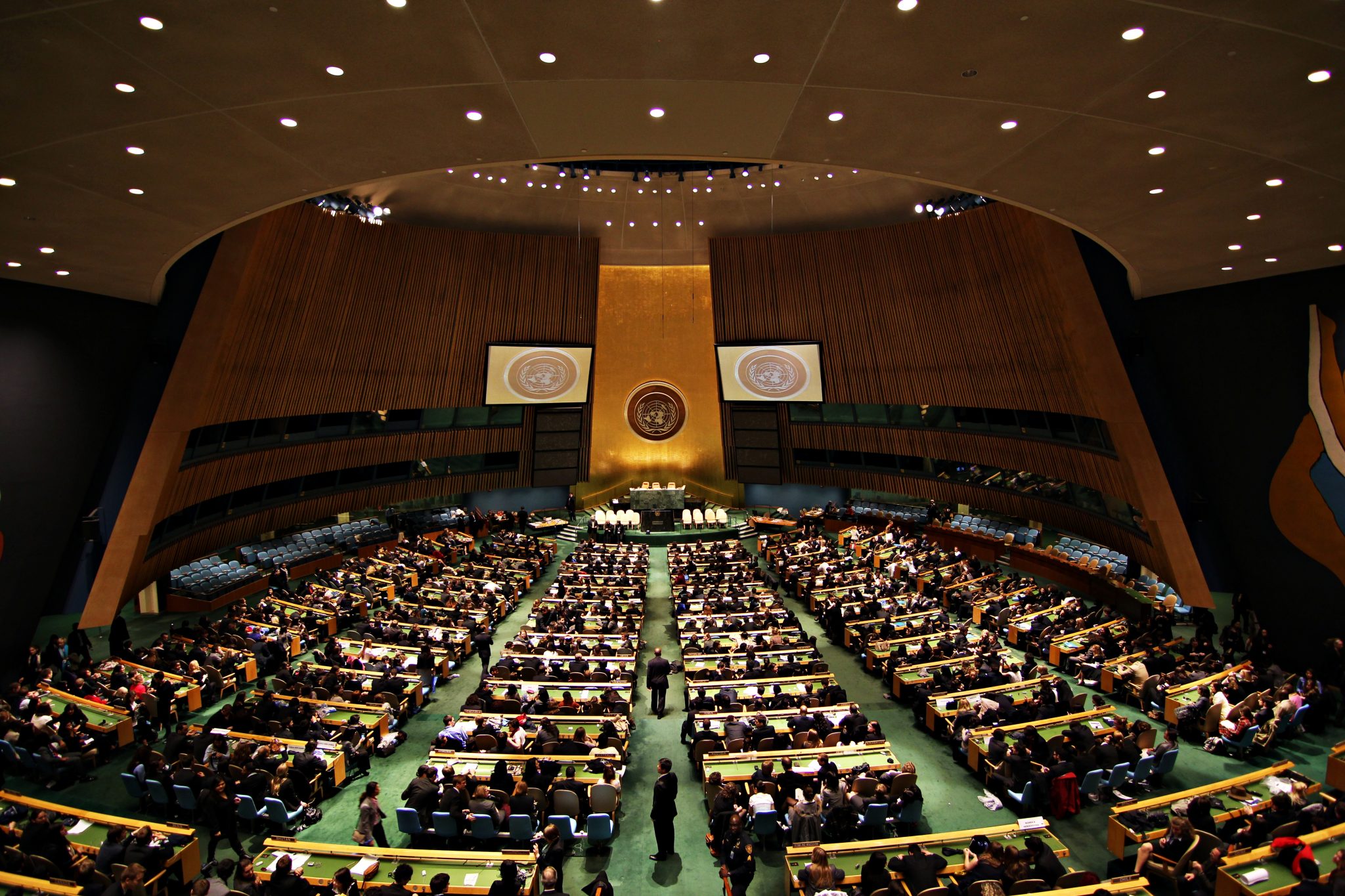Canada Immigration Policy Ruled Discriminatory
Major Victory for Refugees and Immigration Lawyers in Canada as DCO Policy Struck Down
Last month saw a major victory for refugee claimants, immigration lawyers in Canada, and constitutional rights when Canada’s Federal Court ruled the Harper Conservatives’ “Designated Countries of Origin” (DCO) to be discriminatory and unconstitutional.
The DCO policy was introduced by Citizenship and Immigration Canada on December 15th, 2012, under the pretext of deterring illegitimate claims by refugees and asylum seekers so as to focus more resources on more urgent claims. By additionally denying appeals, the government had hoped to save resources by not allowing allegedly fraudulent claimants to tie up our tribunals in “endless appeals.” While there may be merit to reducing the bulk of asylum claimants by weeding out fraudulent claims, the method by which the government had chosen to do has been called out by many critics as being grossly discriminatory.
The system operated by assigning many developed countries—including the United States, Australia, many European Union nations, and other—as “designated countries of origin.” People arriving from these countries as refugee claimants would be processed more swiftly than usual, and almost always have their claims refused. Once refused, claimants from DCOs would be denied the right to appeal. According to Canada immigration officials, the countries selected as DCOs were chosen based on relative safety and unlikelihood to produce refugees, though any immigration lawyer in Canada may be swift to refute that logic.
The notion that citizens of developed nations cannot be oppressed is faulty at best, and the stereotype (or, as the government calls it, “informed statistical generalization”) that people come from less developed countries to abuse our generosity is offensive at best, and life-endangering at worst. One particular country on the DCO list is Hungary, a small country in central Europe, and a member of the European Union. In the last decade, Hungary has seen the rise of several neo-Nazi and anti-Romani groups, who have committed multiple murders and acts of violence against Romani people. Hungary was included on the list, and still, Romani attempting to flee to Canada have been denied despite the publicized violence they faced.
Many LGBTQ peoples have also fled persecution to Canada, only to have immigration officials deny them entry based on their country of origin.
By declaring the policy to be unconstitutional, the Federal Court has helped to further secure equal access to the same rights and freedoms for all people that seek refugee status within our borders. The decision was based on the notion that all refugee claims should be assessed and judged on their individual merits, and not on the nationality of the claimant.
This is a major step towards a fairer, more balanced system for immigration in Canada—which has faced numerous challenges under the Harper government. Now, every immigration lawyer in Canada is armed with that much more power to help refugees find safe asylum.
Canada Immigration Lawyers on Caregiver Residency
Long Wait Times Pose Many Issues, Say Immigration Lawyers in Canada
Canada immigration lawyers are seeing a sharp increase in the time that it takes for foreign caregivers living in Canada to receive permanent residency—despite the backlog being smaller now than it was a year ago. According to immigration officials, this year the processing time has reached a record high of 50 months, compared to 26 months (nearly half) just a year before that. By contrast, the backlog in 2015 consists of 17,600 who had met work requirements under Canada’s caregiver programs, whereas last year that backlog was 24,600 strong.
Last November, the government introduced two brand new caregiver immigration “pathways” to supplement the existing Live-in Caregiver Program alleviate the high processing times: the Caring for Children Pathway, and the Caring for People with High Medical Needs Pathway. These were intended to improve the flow of applications being processed and caregivers being granted permanent residency, but immigration lawyers in Canada have noted that the situation has been worsened in the meantime.
Eligibility for caregivers, both for children and for those with high medical needs, is based on work experience, language ability, and education. Work experience requirements include at least 24 months of full-time work during the four years before applying, though any work done by caregivers of children while studying as a full-time student will not be counted. Language ability is proven by taking a test in English or French at a CIC-approved agency. For caregivers of people with medical needs, additional education and training qualifications may apply depending on the specific National Occupational Classification job description. Once a caregiver has met these requirements, they can apply for permanent residency with or without the assistance of a Canada immigration lawyer—and it is at this point in the process that bottlenecks are being experienced.
However, a spokesperson for Canada’s Immigration Minister was very optimistic in his appraisal of the situation. In an article by the Toronto Star, he is quoted as saying, “We have taken aggressive action to reduce backlogs by planning 30,000 caregiver admissions this year alone… and we will completely eliminate it by the end of 2016.”
However, while waiting for these results to be seen, immigration lawyers in Canada are seeing a more human cost to the delays. Many caregivers who have met the permanent residency requirements but have yet to be approved are also waiting to be reunited with family members. Even once they attain permanent residency, sponsoring children, spouses, and other family members can be a long and difficult process, wrought with its own exceptionally long waiting times. In the meantime, family members overseas waiting to be sponsored often face dangerous conditions, and some families do not remain intact while waiting to be reunited. According to many immigration lawyers in Canada, express family reunification is necessary—and will add more value to a cleared backlog of caregivers becoming permanent residents.
eTA: New Challenges for Immigration to Canada
Immigration Lawyer in Canada Weighs in on the New Electronic Travel Authorization Program
Most immigration lawyers in Canada are familiar with the constantly-changing landscape of our country’s system for accepting immigrants, refugees, and other foreign nationals at our borders. Citizenship and Immigration Canada has been in a state of constant reform for several years now, so it’s not surprising that another potential roadblock has been set up at our borders, even if it may be controversial.
The new eTA program, or Electronic Travel Authorization, is an online application that must be filled out and processed for visitors from otherwise visa-exempt nations. As of March 15th, 2016, people from countries that are authorized to visit Canada without a visa will need to be pre-approved with this online application, which is good for five years or until the passport it is connected to expires—whichever occurs first.
The system—which cost $165.7 million in taxpayer dollars to implement—exempts travellers with valid visas, citizens of the United States, the British royal family, citizens of St. Pierre and Miquelon, people with diplomatic or consular authorization, and certain members of international airline staff. The information required for an eTA is already provided in travel visas, and is used in both cases to deem people as either admissible or inadmissible.
Citizenship and Immigration Canada has implemented the measure, which is already in place in the United States, to increase national security, giving themselves more authority to closely monitor people who are entering Canada’s borders. Canada’s immigration lawyers, on the other hand, see the measure as an added roadblock for refugees seeking asylum in Canada. Many refugees already have difficulty entering the country, and other recent changes to Canadian immigration law have already made it nearly impossible for many to enter Canada’s borders. Some believe that the eTA is the final nail in the coffin of Canada’s former reputation as a welcoming refuge for those feeling from persecution or fearing for their lives.
Making issues more complicated, even after receiving an electronic travel authorization, a person may still be refused entry by a border official if deemed inadmissible. Common reasons for visa-exempt travellers to be refused entry included suspected involvement in terrorist activity or organizations, suspected espionage, alleged criminal behaviour in their country of origin, and diagnosis of an infectious or difficult-to-contain disease. While some refusals are valid, many are based solely on suspicion, which has also contributed to the increased difficulties of refugees who have been wrongfully or illegally accused of treason in their home nations.
If you are seeking entry into Canada and aren’t sure of how to proceed or what requirements are necessary for you to enter, contact an immigration lawyer in Canada, who will be able to answer any questions you have and help guide you through the process.
Canada’s Immigration Practices Concern United Nations
A new country report released by the United Nations’ Human Rights Committee has raised concern about the length of immigration detentions in Canada
In a report released earlier this week, the United Nations Human Rights Committee expressed their concerns regarding Canada’s practice of detaining foreign nationals in immigration custody and in particular the indeterminate lengths of these detentions.
The Committee characterized immigration detention as a measure of last resort, emphasizing the importance of non-custodial measures and alternatives to detention to be used in treatment of foreign nationals and detainees. In their report, the Committee also proposed several recommendations for Canada to follow in regards to immigration detentions, urging the Canadian government to refrain from detaining individuals for indefinite amounts of time. The Committee also recommended that Canadian authorities establish reasonable time limits for detaining individuals in immigration custody.
The Committee’s report comes after several incidents regarding Canadian immigration detention practices have been reported in the media. Among these incidents is a story of a former permanent resident currently represented by immigration lawyers at Gerami Law. The former permanent resident, a Yemeni national, has been in immigration custody awaiting removal since 2013, a twenty-two months period that has already been characterized as indefinite by the Immigration and Refugee Board. At the individual’s last detention review, the Board held that the removal plans proposed by the government were unlikely to materialize due to volatile conditions in Yemen.
This finding is also supported by a judicial review decision rendered earlier this month when the case was before the Federal Court. In light of the indefinite length of the detention, the Federal Court instructed that immigration officials have a heightened obligation to consider alternatives to detention and specifically release upon conditions. Immigration lawyers at Gerami Law will be putting forth these arguments before the Immigration and Refugee Board at the individual’s next detention review this upcoming Tuesday.
IRB Continues Immigration Detention Despite Federal Court Ruling
Current length of detention has now engaged liberty interests under section 7 of the Canadian Charter of Rights and Freedoms
On June 26th, 2015, a Member of the Immigration Refugee Board decided to continue detaining a 26 year-old Yemen-born, former permanent resident, despite the Federal Court ruling that the current length of detention has now engaged liberty interests under section 7 of the Charter. The refugee law office of Ms. Arghavan Gerami successfully argued this case before Honourable Mr. Justice Le Blanc (Ahmed v. Canada).
The Immigration Refugee Board Member held that continued detention was justified on grounds of flight risk and danger to the public, despite a detailed release plan presented by the detained individual’s legal counsel and the fact that the national parole board had deemed this individual safe to re-enter society two years prior. The Member also agreed with the Minister that the proposed plan, consisting of a $10,000 bond, two sureties, a daily supervision schedule and a commitment to see a psychologist, was not sufficient to mitigate the above grounds of detention.
The Federal Court’s findings on this case two days prior to the Member’s decision, however, suggested that continued detention of this individual would run contrary to the Charter. The Federal Court judge, whose jurisdiction trumps that of the Immigration Refugee Board, found that deportation of this individual was unlikely to take place in the foreseeable future given the dangerous ground conditions in Yemen. As such, the judge ruled that the current length of detention has now reached the point where the individual’s Charter protected liberty rights have been engaged, effectively characterizing the detention as indefinite. And yet, notwithstanding these findings and counsel’s arguments that a violation of liberty rights under the circumstances undermines other considerations, the IRB Member held that the possible risk posed by this individual outweighed the indefinite nature of his detention.
While indefinite detention can be justified in some circumstances, the extent to which liberty rights under the Charter can be infringed is limited. Immigration lawyers believe that, on the facts of this case, the reasonable limit for infringement has already been surpassed. Limitations on section 7 Charter rights must be in accordance with the principles of fundamental justice, and therefore cannot be arbitrary or disproportionate. Depriving an individual of their liberty for an indefinite amount of time, especially when the criminal justice system has already authorized their release, cannot be said to accord with these principles.





